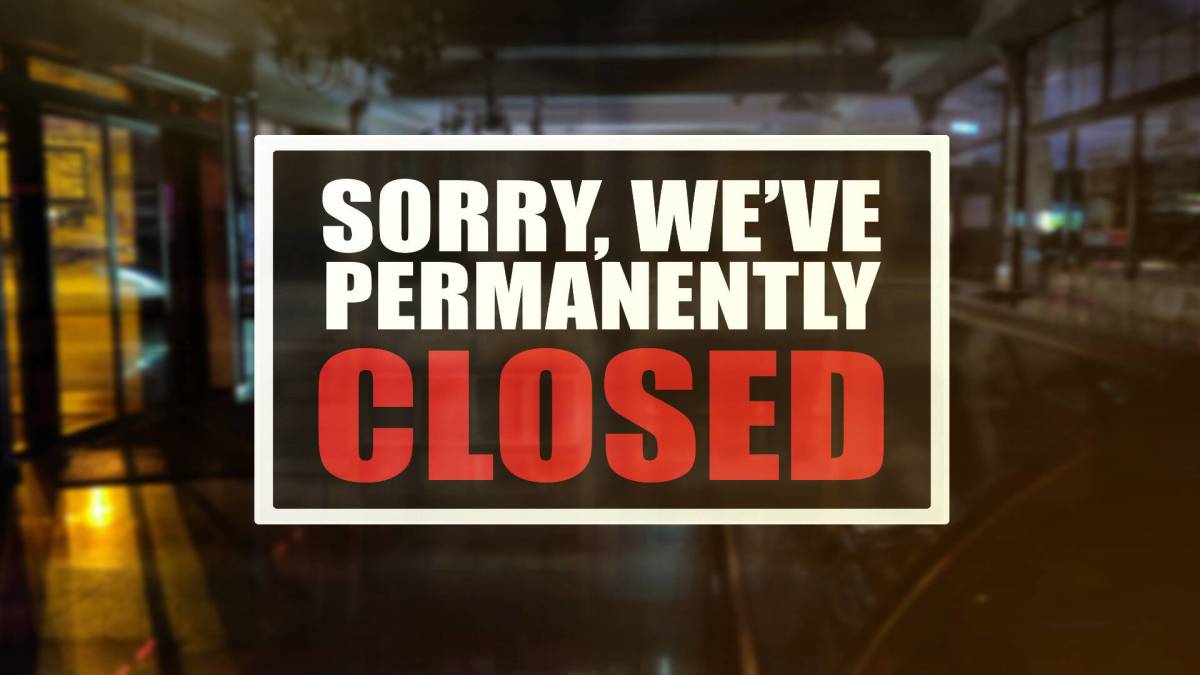Popular local bakery chain closing all stores next month
Once upon a time, independent businesses could grow into thriving chains. Today, achieving that level of success is far more difficult as competition has become fiercer, costs higher, and consumer loyalty increasingly unpredictable in an uncertain economy. For small businesses to survive, many ...

Once upon a time, independent businesses could grow into thriving chains. Today, achieving that level of success is far more difficult as competition has become fiercer, costs higher, and consumer loyalty increasingly unpredictable in an uncertain economy.
For small businesses to survive, many factors must align, from a well-thought-out business model and prime location to reliable funding and, often, luck. Yet even beloved brands can find themselves on the losing side.
The top reason most businesses fail is due to an inability to secure adequate financing and running out of money, according to a survey by CB Insights. Most others simply can't keep up with their products, are out-competed, or consumer preferences evolve.
After years of overcoming those odds, The Chubby Baker, a popular Utah bakery known for its unique sweets and beverages, will close all locations on November 9, marking the end of a self-made success story that began in the pandemic. Shutterstock
The Chubby Baker history
Founded by Ying Nance in 2020, The Chubby Baker began as a delivery-only bakery in Salt Lake City during the peak of COVID-19 lockdowns. It quickly earned a following due to its creative offerings, including donuts, cakes, croffles, cinnamon rolls, and a mix of teas and coffee drinks.
Within a year, the business expanded to its first physical location, eventually growing to three stores across Utah.
The Chubby Baker locations closing
- Orem: 1167 S State Street
- Salt Lake City: 317 E 900 S
- Sandy: 9470 Highland Dr. Suite 2
But, despite its popularity, operating costs became unsustainable. In an Instagram post, Nance cited the escalating price of goods, payroll, and other expenses, as well as personal reasons, for the decision to close.
"As our family continues to grow, I’ve realized how much time and energy this business takes — time I want to spend with my little ones. I am a businesswoman, but I will always be a mom first," wrote Nance.
More Closures:
- Mexican restaurant closes unexpectedly amid alarming legal troubles
- Beloved family restaurant chain closes another location
- 100-year-old grocery chain closes all stores in several states
As the bakery's final days approach, Nance encourages customers to visit the stores while they can. The menu will focus on donuts and cakes, with croffles and cinnamon rolls available while supplies last.
Broader industry challenges facing businesses
The Chubby Baker's closures are part of a troubling pattern across the food service industry. Many small operators that managed to survive the pandemic now face mounting economic pressures, including higher food, labor, and rent costs, along with reduced consumer spending and foot traffic.
According to the U.S. Bureau of Labor Statistics, about 17% of new restaurants close within their first year, and nearly half fail within five.
"Small businesses may find it difficult to operate during challenging economic conditions. Exit rates typically decrease with firm age and cash liquidity, which can help businesses withstand downturns. Historically, the median life expectancy for small businesses has hovered around five years," according to JPMorganChase.
Related: Walmart announces unexpected store closure
While independent restaurants have opened at a faster rate than chains since the pandemic, they also account for most closures. Restaurant Data reports that in the first half of 2024, around 13,265 independent establishments shut down compared to 2,712 chain locations.
"A business owner has greater potential to mismanage certain aspects of the business without a dedicated management team, whether it be finances, hiring, or marketing," per Investopedia.
Why small businesses struggle
Several recurring factors contribute to the short lifespan of small businesses.
Source: Hancok Whiney
- Rising costs: Rent, labor, and supplies often demand significant upfront investment with little immediate return.
- Limited financial cushions: Many small businesses operate tight margins and limited cash reserves.
- Increased competition: Larger chains benefit from bulk purchasing power, brand visibility, and marketing budgets independent businesses can't match.
- Shifting consumer habits: Changing economic conditions and preferences can quickly make once-popular products obsolete.
- Operational challenges: Owners frequently juggle multiple roles without the resources for dedicated teams.
- Economic uncertainty: Inflation, interest rate hikes, and recessions are unpredictable.
- Regulatory and administrative costs: Compliance can be both expensive and time-consuming.
- Limited marketing reach: Without significant advertising budgets, small businesses often struggle to expand beyond their local customer base.
Related: Iconic Mexican restaurant chain makes comeback after 20-year hiatus
What's Your Reaction?




















































